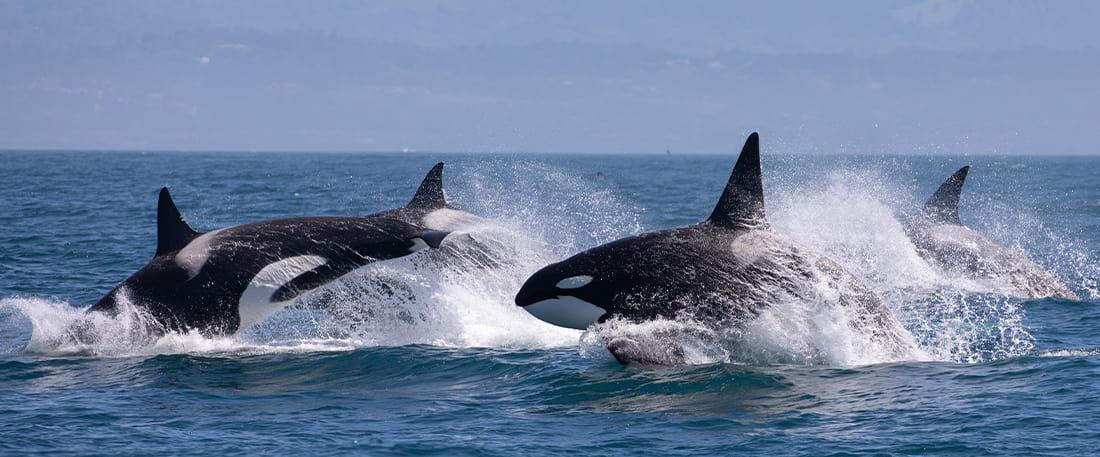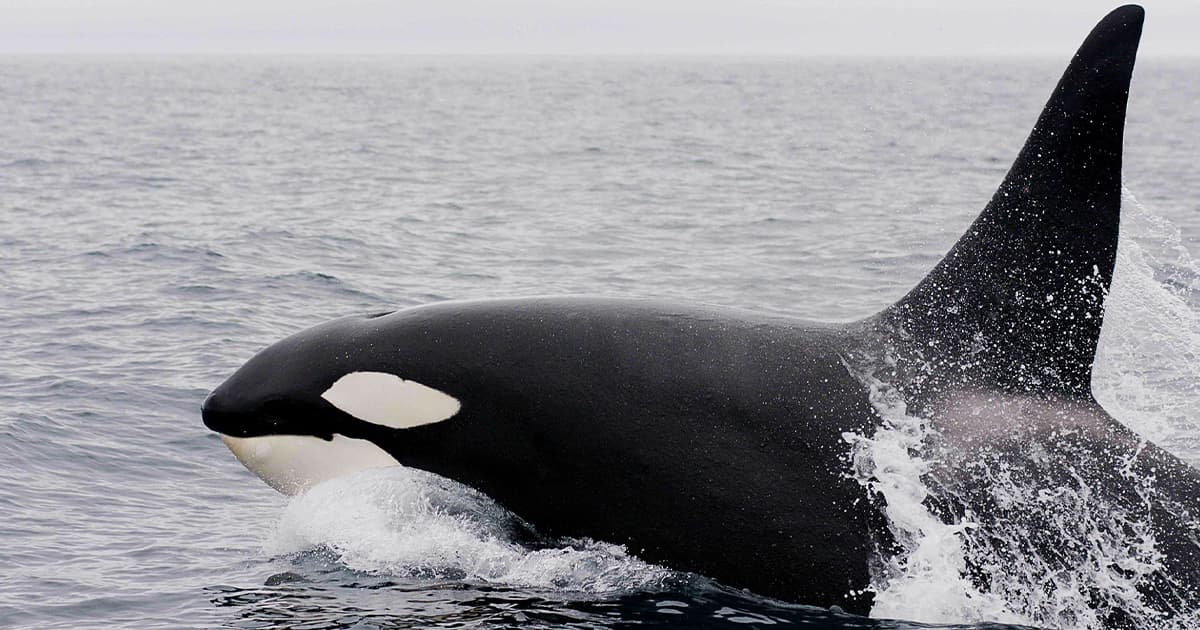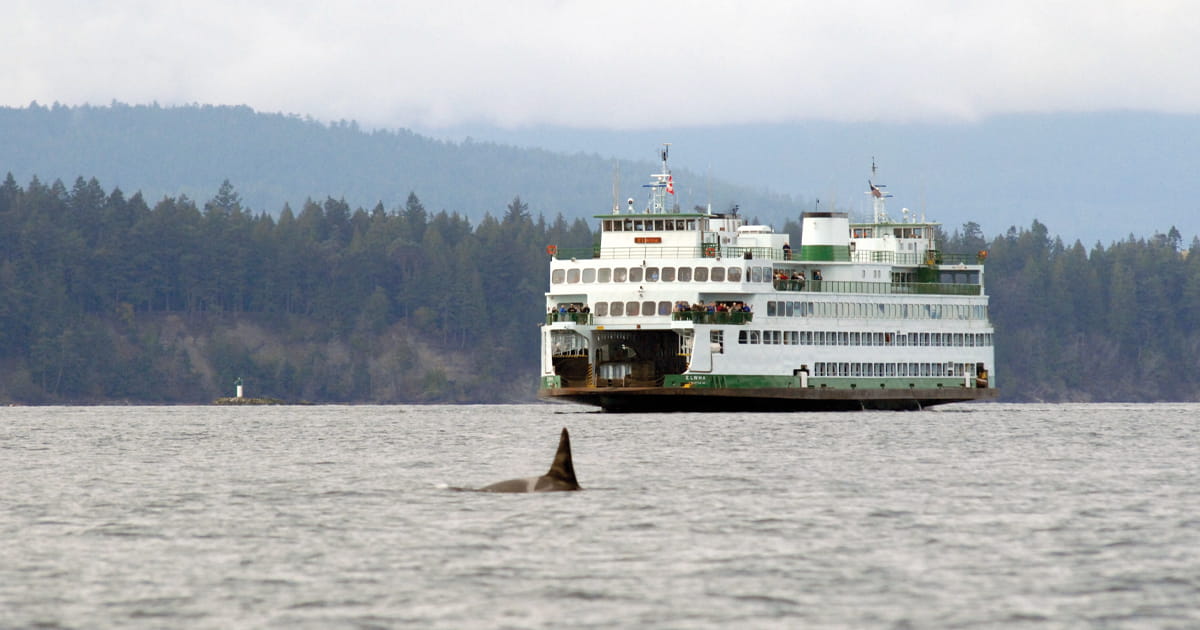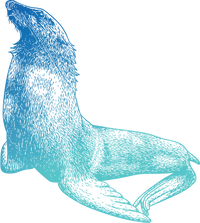Join us to support quieter waters for orcas

From late October to early January—for the first time—many large ships in Washington waters slowed down for orcas.
How does this help whales? Slower vessels make less noise. When the waters are quieter, endangered Southern Resident orcas have an easier time communicating with each other and echolocating to find and catch scarce salmon. Slow-moving vessels are also less likely to hit a whale, and as a bonus for the climate, the ships’ greenhouse gas emissions decrease.

A promising partnership
The voluntary ship slowdown was made possible by a new program called Quiet Sound—a collaborative effort involving government agencies, the shipping industry, the U.S. military, tribal groups, environmental organizations like the Seattle Aquarium and the scientific community—and modeled after a successful program in British Columbia, Canada. The Washington waters trial encouraged vessel operators to reduce their speed in designated transit areas to targets of 11 or 14.5 knots, depending on vessel type. The result? Twenty nautical miles of a quieter, better protected habitat for orcas and other wildlife.
Quiet Sound’s strong start
- Week to week, between 46% and 69% of ships slowed down—a remarkable participation rate for a brand new, voluntary initiative.
- The slowdown window overlapped with three-quarters of the days the Southern Residents were in Puget Sound in 2022.
An opportunity to do more
To continue and even expand this work, Quiet Sound needs additional funding from the Washington state legislature. This legislative session, the Seattle Aquarium is supporting a $700,000 two-year request in Olympia to do just that.
But large ships are just one source of underwater noise. This legislative session, we also have an opportunity to reduce noise from smaller recreational boats. Senate Bill 5371/ House Bill 1145 reflects the latest science-based recommendations from the Washington Department of Fish and Wildlife to create a 1,000-yard buffer around the endangered orcas for all small boats (except active commercial fishing and tribal fishing boats and permitted research boats). This simplifies currently complex regulations and reflects the latest science from NOAA, showing that a Southern Resident orca’s chance of catching a salmon is dramatically reduced when boats are moving at any speed within 1.5 km (1,640 yards). The bill also reduces the cost of a commercial whale-watching license, and boaters would not see any changes in what is allowed for viewing other whale species. The Seattle Aquarium supports this legislation, and we hope you will raise your voice with us.
Ready to help orcas?
- Contact your Washington state legislators and ask them to support two initiatives to reduce noise impacts on orcas: funding for Quiet Sound and Senate Bill 5371/ House Bill 1145. Call the toll-free legislative hotline at 1-800-562-6000 (TTY for hearing impaired 800-833-6388) between 8am and 7pm, Monday through Friday, to leave a message for all three of your legislators at once.
- Observe Be Whale Wise regulations and guidelines, at a minimum, when boating and try to give the endangered orcas even more space. That’ll make it easier for them to forage successfully.
- Learn where to watch whales from shore: There are amazing spots around the region!
- Report whale sightings so mariners can receive alerts when whales are in the area and take action to avoid them. You can report through Orca Network, the WhaleReport app (on Apple and Android) or the Whale Alert app (on Apple and Android).
For more orca inspiration, check out our short film Stories from the Salish Sea: Eba and the Orcas if you haven’t already! That webpage also has ideas for how you can take action to reduce toxic pollution, which will help increase salmon available for the orcas to eat—vital for their recovery.


